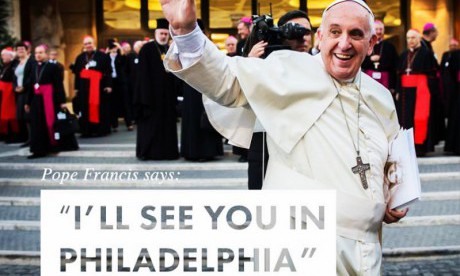When Pope Francis makes his first trip to the United States this month, he will act on a grand stage much as previous popes have done.
There will be a private meeting with the president and public Masses in Washington, D.C.; New York; and Philadelphia. He will address the United Nations.
Two aspects of his trip, though, will be unprecedented: He will be the first pope to address Congress, and, equally significant, he will visit homeless people in D.C., underprivileged third-graders in East Harlem, and prisoners in a Philadelphia correctional facility, where he will minister to 100 inmates and their families.
Counterbalancing his meetings with world leaders is a classic Francis move and a potent embodiment of his global agenda.
In the two and a half years since his election, Francis has earned a reputation for his simplicity and directness, but the pope from Argentina is also a master of political symbolism and an immensely shrewd politician.
He knows that the eyes of all nations will be on the message “the Pope of the Poor” delivers to the world’s richest nation.
The pope’s religious message — that the Gospel should be joyful, merciful, and embrace everyone, especially the poor — is plain and direct.
And yet the political strategies he uses to enact that vision are sophisticated and even wily. Inside the Church, he has set out to modernize the Vatican, rooting out corruption and careerism and placing the pastoral care of ordinary people before dogma and rules. Love and inclusion now come before judgment and condemnation.
In the larger world, his mission is just as radical: to realign global policy to better aid the poor and excluded. That has included pushing nations to address the prickly issues of climate change and economic inequality. Continue reading
Sources
- New York Magazine, from an article by Paul Vallely, the author of Pope Francis: The Struggle for the Soul of Catholicism.
- Image: Prima News
